Why Bird and Lime Scooters Are Invading US Cities Everywhere
Scooters from Bird and Lime promise to make getting around town a lot faster in a growing number of cities, but the vehicles are proving controversial.
There's something happening on streets across the U.S. to make getting around easier. And it has nothing to do with hoverboards.
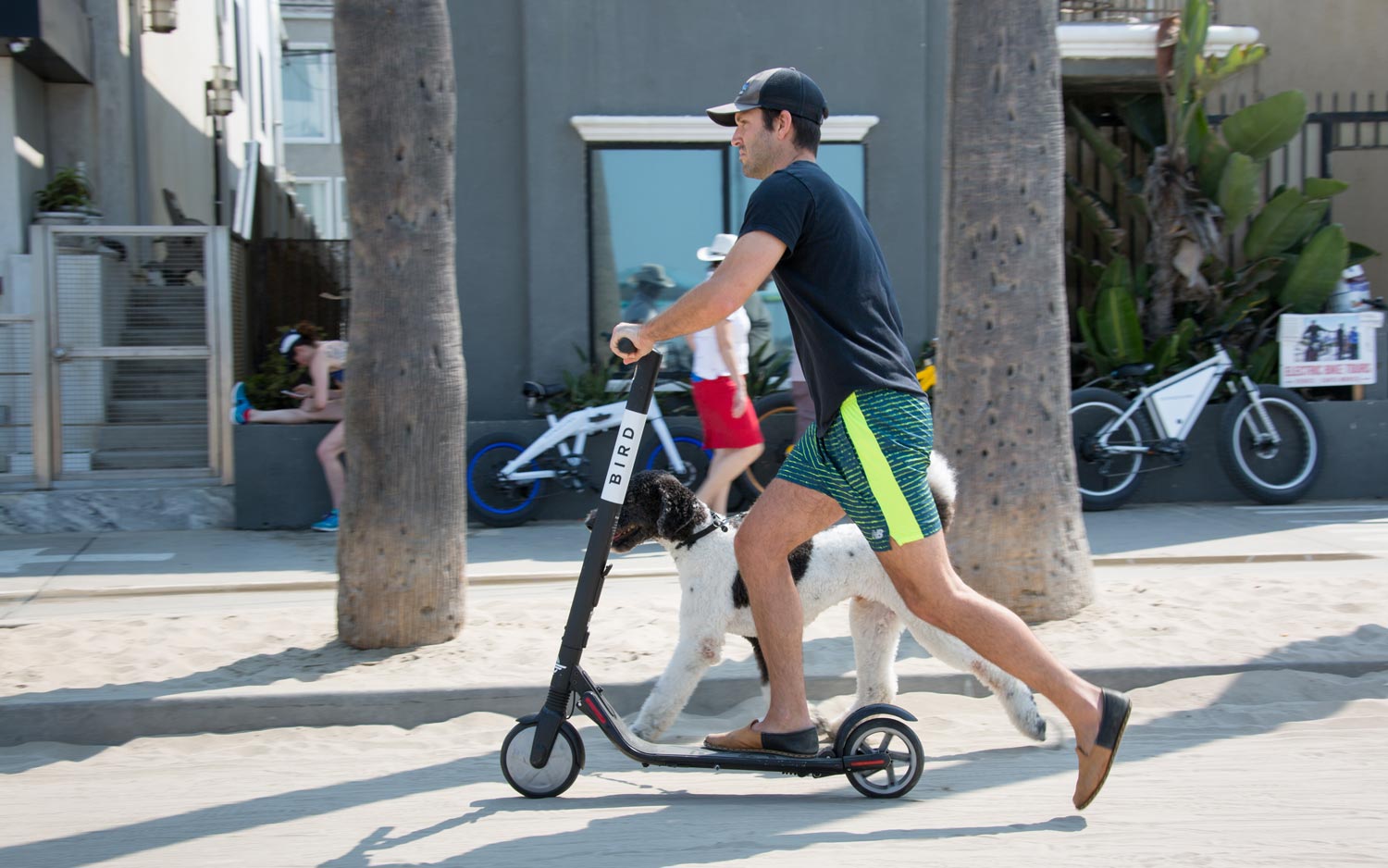
Over the last several months, smart-mobility companies Bird and Lime have been expanding their presence in cities across the country. The companies offer app-based scooter rides that allow you to locate a scooter around your city, unlock it and pay for it from the app, then get off at your destination.
The process is simple and cheap, and it certainly beats walking. And with so many more cities coming online with Lime and Bird scooters each week, there's a good chance you'll see some of these "micro-mobility solutions" traveling around your streets soon. But these scooters are also causing some controversy, with some cities already banning them.
Stay ahead of the curve and learn about how the Bird and Lime scooters work, where you can (and can't) use them and why some cities are already banning these vehicles.
What is a micro-mobility solution?
To understand Bird and Lime, you must first understand what a micro-mobility solution is.
Both companies are concerned about the state of mobility and our reliance upon cars to get around town. They realize that to cut down on congestion and help the environment, there needs to be an alternative to ride-sharing options like Uber and Lyft.
MORE: 9 Odd Ways Your Tech Devices May Injure You
So, they've opted for electric scooters and, in some cases, bikes. The two companies are setting up areas for you to pick up an electric scooter and pay for it with your app, before taking it to your destination.
The companies envision people using the services for business and leisure travel and are trying to expand their offerings to more cities across the U.S. You can also play a role in getting their operations to your municipality.
What is Lime?
Lime focuses on what it calls "smart mobility for the modern world." The company allows you to take electric scooters, e-assist bikes and rental bikes from one point to another.
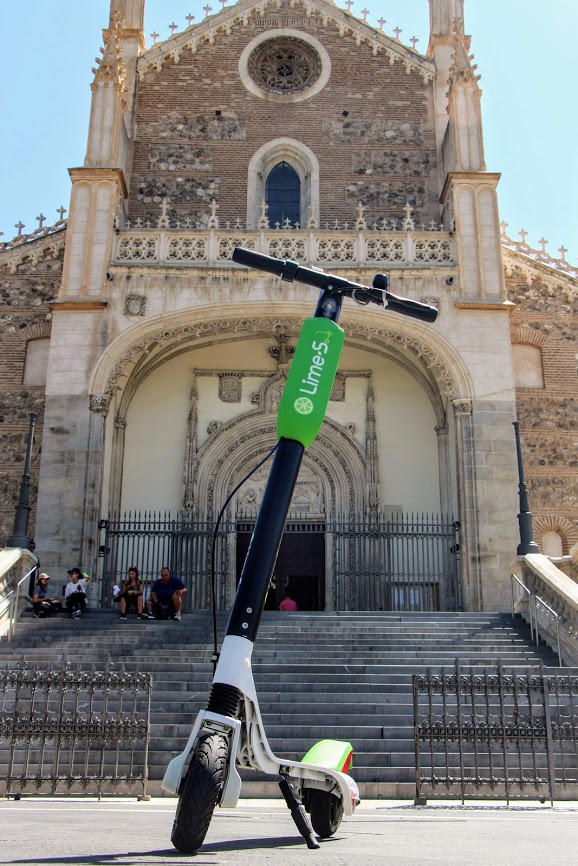
The service is completely controlled by the free Lime app, which is available on both Android and iOS. Rides start at $1, and you can use your scooter for as long as you want.
What is Bird?
Bird is a similar service, in that it allows you to take rides with electric scooters and access them from the company's app. Prices start at $1 for a ride, and as soon as you find a nearby Bird (that's the name of the scooters), you can ride it anywhere around town. You can then leave the scooters anywhere, since there are no specific docking stations.
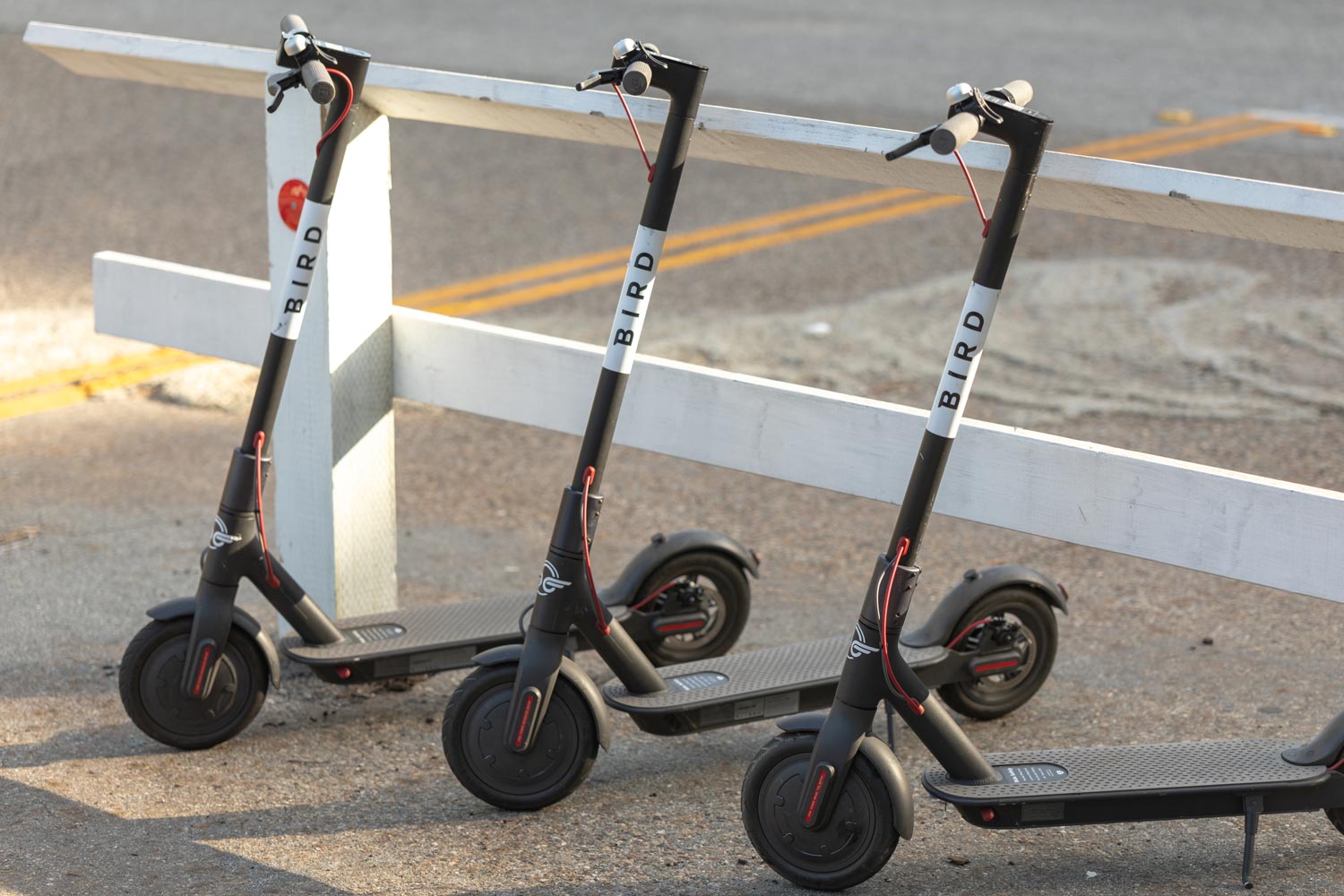
Bird's apps are free to download on iOS and Android, and the service is available in several cities across the U.S. In addition to facilitating rides, Bird is extremely concerned about security and has a handy guide on its site that tells you how to be safe while you're riding one of the company's scooters.
How does Lime work?
It's pretty simple. Just download the company's app from Android or iOS. You'll find that they are free to download and work on most recent devices.
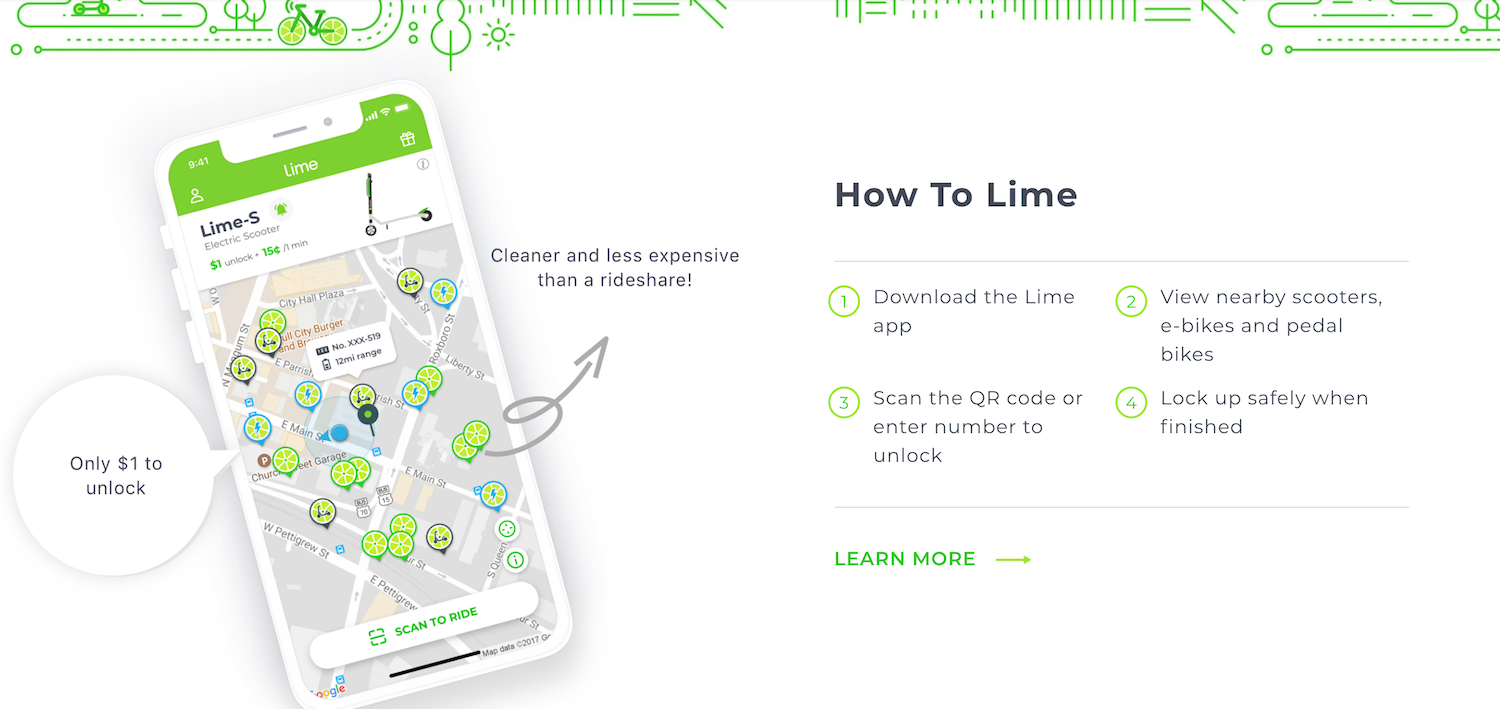
Next up, create your Lime account and access the map to find out where your local rides are.
When you get to the bike or scooter of your choosing, you'll see a QR code on it. Scan that into your app. Lime will then charge your card and track you as you go. Once your payment is confirmed, the Lime bike or scooter will unlock, and it's off you go.
How does Bird work?
As you would with Lime, you'll need to download the iOS or Android app for Bird to get started.
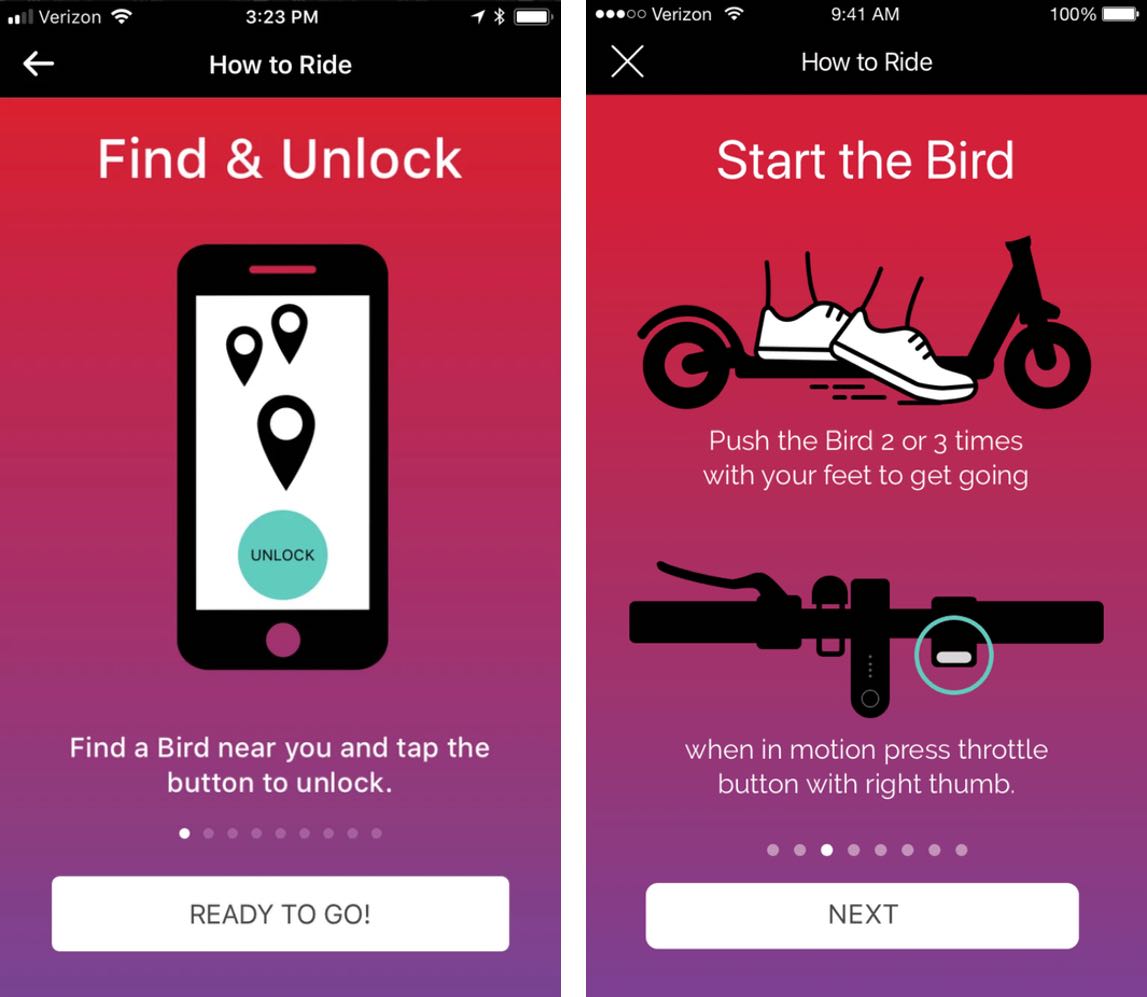
After you boot up the app, you'll want to find a Bird near you and tap the button on the screen to unlock the scooter. Bird will charge you as you go. When you're done, you can drop the scooter off anywhere and choose to "lock" your Bird from the app. It'll then be left there for the next person and stop charging you for your time.
How much do the services cost?
It's hard to pinpoint exactly how much you can expect to pay with Bird or Lime, because the cost depends on where you're going and how long you're traveling.
However, both services start at $1 to unlock. They then charge you a small fee per minute. Bird limits your daily charge to $100. If you don't return the vehicle within 48 hours, it's considered lost or stolen, and you could be charged up to $500. The company also reserves the right to charge $25 for rentals that last more than 24 hours but less than 48 hours.
MORE: Connected Cars: A Guide to New Vehicle Technology
Lime charges 15 cents per minute in most areas for an electric scooter. Electric-assist bikes also charge 15 cents per minute. Lime's bikes will set you back $1 for every 30 minutes.
Additionally, Lime has a plan called LimePrime, which costs $30 per month for $100 in ride credits. However, that's available only on classic pedal bikes. A LimePrime Students plan is available for $15 per month and includes 100 ride credits.
According to its user agreement, Lime could also charge you a variety of fees for vandalizing its vehicles. These charges max out at between $50 and $200 per 24-hour period, depending on the vehicle you choose. Lime will also charge you between $600 to $2,000 if you fail to return a vehicle within 48 hours.
What about safety?
There's obviously a safety component to consider. After all, if you're riding an electric scooter or bike, you should wear a helmet.
However, neither Lime nor Bird offers helmets with its rides. Instead, the companies suggest you wear a helmet and give you a guide on road signals. In other words, your safety is on you.
Where is Lime available?
- Mesa, Ariz.
- Scottsdale, Ariz.
- Tempe, Ariz.
- Alameda, Calif.
- Albany, Calif.
- Burlingame, Calif.
- El Cerrito, Calif.
- Imperial Beach, Calif.
- Los Angeles
- Monrovia, Calif.
- Mountain View, Calif.
- National City, Calif.
- Oakland, Calif.
- San Diego
- San Francisco
- San Mateo, Calif.
- Santa Monica, Calif.
- South San Francisco, Calif.
- South Lake Tahoe, Calif.
- Walnut Creek, Calif.
- Aurora, Colo.
- Denver
- Key Biscayne, Fla.
- Miami Shores, Fla.
- North Bay Village, Fla.
- North Miami, Fla.
- Chicago
- Rockford, Ill.
- Elkhart, Ind.
- South Bend, Ind.
- Silver Spring, Md.
- Arlington, Mass.
- Bedford, Mass.
- Belmont, Mass.
- Chelsea, Mass.
- Everett, Mass.
- Malden, Mass.
- Medford, Mass.
- Melrose, Mass.
- Milton, Mass.
- Needham, Mass.
- Newton, Mass.
- Revere, Mass.
- Waltham, Mass.
- Watertown, Mass.
- Winthrop, Mass.
- Edina, Minn.
- Golden Valley, Minn.
- Minneapolis
- Clayton, Mo.
- Ferguson, Mo.
- St. Louis
- Reno, Nev.
- Keyport, N.J.
- Plainfield, N.J.
- Ithaca, N.Y.
- New York
- White Plains, N.Y.
- Yonkers, N.Y.
- Charlotte, N.C.
- Durham, N.C.
- Greensboro, NC
- Columbus, Ohio
- Dublin, Ohio
- Worthington, Ohio
- Portland, Ore.
- Arlington, Texas
- Austin, Texas
- Dallas
- Plano, Texas
- Salt Lake City
- Seattle
- Bothell, Wash.
- Washington, D.C.
- Green Bay, Wis.
- Berlin
- Bremen, Germany
- Frankfurt, Germany
- Zurich
- Paris
What is the Lime Campus Network?
The Lime Campus Network is Lime's service for students. It's available at a few campuses (below) and is designed to change how students make their way around campus.
Here's a list of Lime Campus Network participants:
- University of Notre Dame
- Saint Mary's College
- University of Washington
- St. Thomas University
- Johnson & Wales University - North Miami
- North Carolina Central University
- Washington University in St. Louis
- Holy Cross College
- University of North Carolina at Greensboro
- Guilford College
- California State University, Northridge
- Durham Technical Community College
- East Carolina University
- North Carolina State University
- North Carolina Agricultural and Technical State University
- Arkansas State University
- Barry University
- Duke University
- Georgetown University
Does Lime offer business and community network options?
Yup. Companies and community organizations can sign up for the service to provide access to employees and constituents, respectively. Lime's community network lets low-income individuals use Lime at "heavily subsidized" prices.
Where can I find Bird?
- Scottsdale, Ariz.
- Tempe, Ariz.
- Los Angeles
- Newport Beach, Calif.
- Oakland, Calif.
- San Diego
- San Jose, Calif.
- Denver
- Indianapolis
- Cambridge, Mass.
- Somerville, Mass.
- Baltimore
- Edina, Minn.
- Minneapolis
- St. Paul, Minn.
- Kansas City, Mo.
- St. Louis
- Charlotte, N.C.
- Raleigh, N.C.
- Cincinnati
- Columbus, Ohio
- Oklahoma City
- Portland, Ore.
- Providence, R.I.
- Memphis, Tenn.
- Austin, Texas
- Dallas
- San Antonio
- Salt Lake City
- Arlington, Va.
- Milwaukee
- Washington, D.C
- Paris
How will I know when they're coming to my area?
Luckily, both Bird and Lime offer ways for you to request their services in your area.
If you want Bird to come to your city, ask a city official to contact the company's City Relations team at city@bird.co. Bird will take it from there.
Lime, meanwhile, has a voting system that calls on anyone to suggest that the service come to their city. Once Lime votes hit a critical mass for your area, the service could come to your city.
Can I make money off Lime and Bird?
You can. As nice as electric scooters might be, they do need to be charged. And because Lime or Bird users might not have easy access to charging stations, the companies need help from the community to keep the chargers boosted.
So, both Bird and Lime offer programs that will pay people to pick up low-battery scooters, charge them overnight at their homes and then bring them back to locations determined by the companies.
MORE: How to Order an Uber from the Amazon Echo
Neither company says how much it pays, but you can contact them directly to find out.
Why are some cities banning these scooters?
Over the last few weeks, some municipalities have taken issue with e-scooter companies. While the cities have stopped short of calling the companies illegal or suggesting they shouldn't be in their areas, the locations have cautioned that these businesses can't just come to the municipalities without some oversight.
In Milwaukee, for instance, Bird was asked to remove its scooters pending a framework for deciding how the company would operate there. The move followed a lawsuit the city filed against Bird over the scooters' use by citizens. Wisconsin is currently evaluating scooter use on public roads, and until Milwaukee can get some guidance there, Bird's scooters are banned in the city.
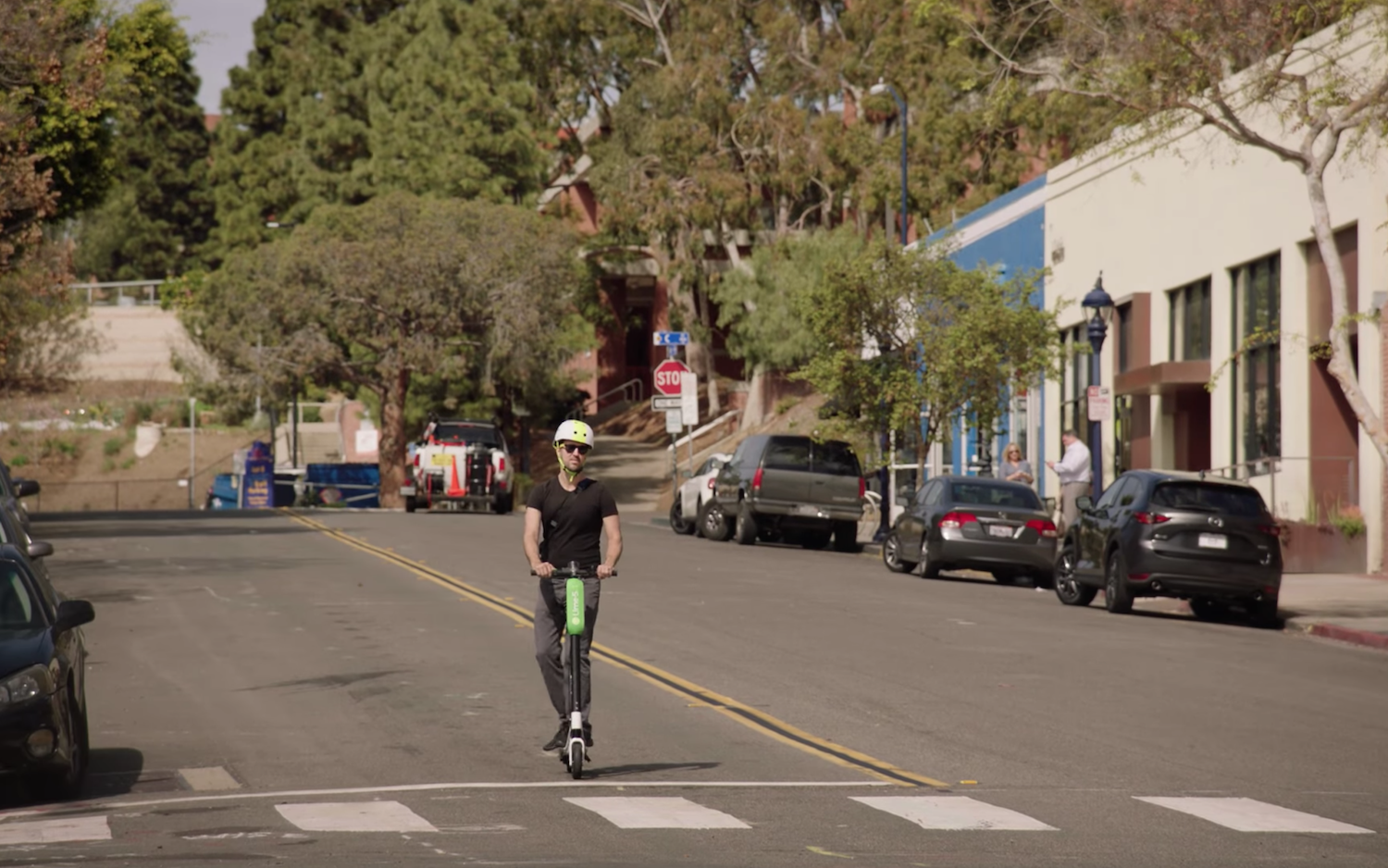
It's a similar story for Bird in Boston, which has threatened to impound the company's scooters. The city wants Bird to obtain permits to operate its service — something the company did not get when it opened in Boston. A hearing will take place in the fall.
Santa Monica, California, banned Bird, Lime and all other e-scooter companies, pending a trial program that starts in September.
According to the Los Angeles Times, the city was overrun with scooters that caused traffic jams and other nuisances. City officials banned the companies until they could develop policies to control the services. The city is currently proposing higher fees to obtain permits, as well as a cap on the total number of scooters that can operate around the city.
Nearby Beverly Hills, California, banned both Bird and Lime for six months in July. The city council rules that the scooters are a safety concern, according to The Hollywood Reporter, and were deployed in the area without coordinating the launch with city officials.
Indeed, proper permitting and getting permission appear to be the biggest problems facing Bird and Lime.
Sign up to get the BEST of Tom's Guide direct to your inbox.
Get instant access to breaking news, the hottest reviews, great deals and helpful tips.
Don Reisinger is CEO and founder of D2 Tech Agency. A communications strategist, consultant, and copywriter, Don has also written for many leading technology and business publications including CNET, Fortune Magazine, The New York Times, Forbes, Computerworld, Digital Trends, TechCrunch and Slashgear. He has also written for Tom's Guide for many years, contributing hundreds of articles on everything from phones to games to streaming and smart home.
-
jeffbair84152 BIRD and LIME are using a guerrilla marketing approach - just drop the scooters in a city and build ridership so the city will have to allow them. Unfortunately, that often causes problems. BIRD tried this approach in Salt Lake City. The city notified BIRD that they needed to talk to the city to gain a permit and business license. The main issue with the scooters in SLC is people riding on the sidewalk. The BIRD scooters even say on the foot board, "Do not ride on the sidewalk" and there is also a message that appears in the app with the same text when you rent a scooter. LIME has only recently added a similar message to their app. The scooters are convenient, but if people don't stop riding on the sidewalks, SLC can pull the conditional operating permits and force the scooters to be removed. There just needs to be better education regarding where you can ride them. I think putting "Do not ride on the sidewalk" on the handlebars would be a great first step.Reply -
derikgw1973 These companies move in without consulting the city about safety and laws. People go nuts on these scooters and end up getting hurt and damaging property. We have had two bad accidents here in Indianapolis in just a few weeks. The city outlawed using these on the sidewalk, and yet just a few days ago a man was hit by a truck being waved out by a security officer because the man on the scooter was on the sidewalk and shot out in front of the truck. These scooters are a nuisance and need to go away. Heck I would argue that until the city enforces bike laws (make bicyclers follow traffic laws) we should get rid of bikes too!Reply
